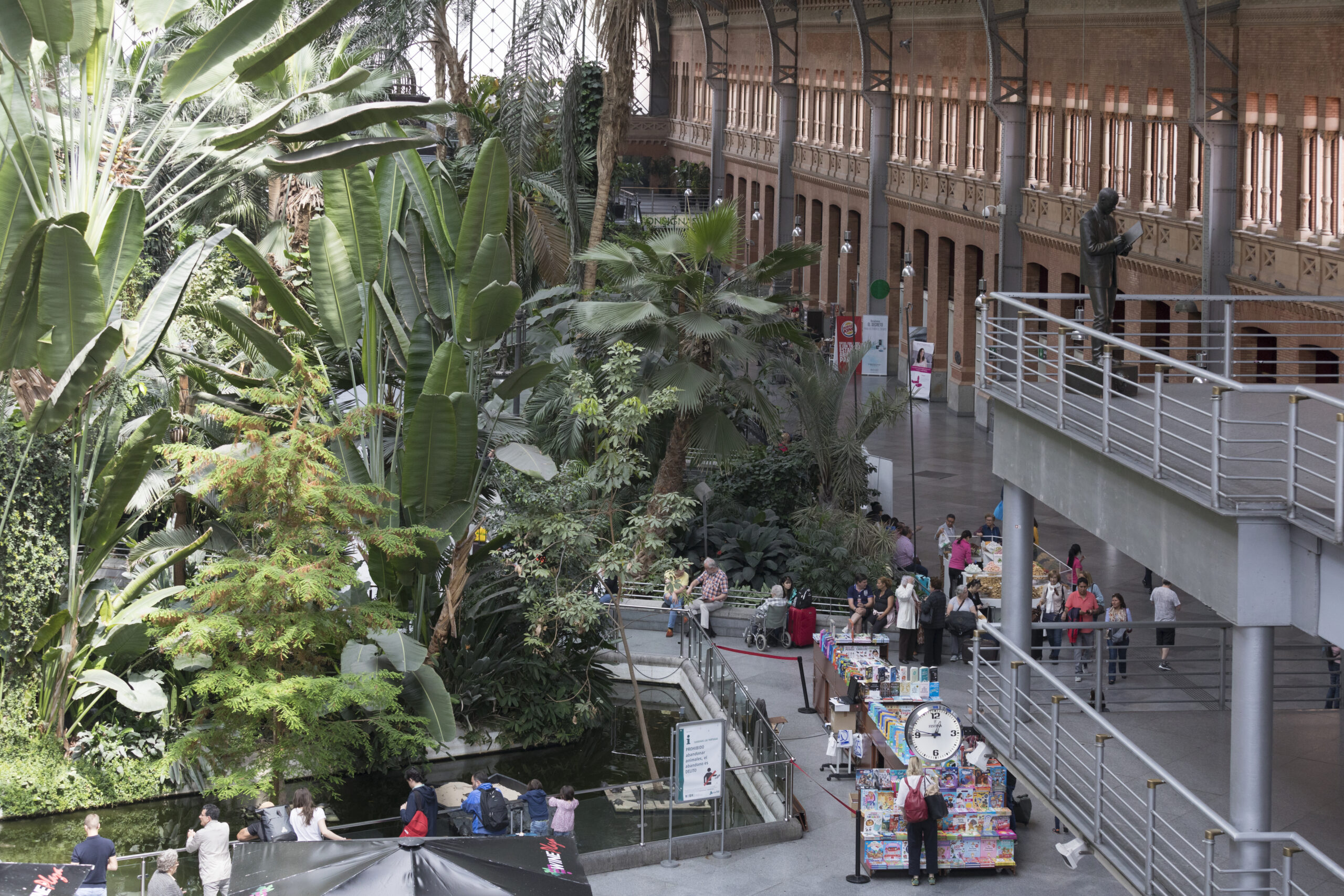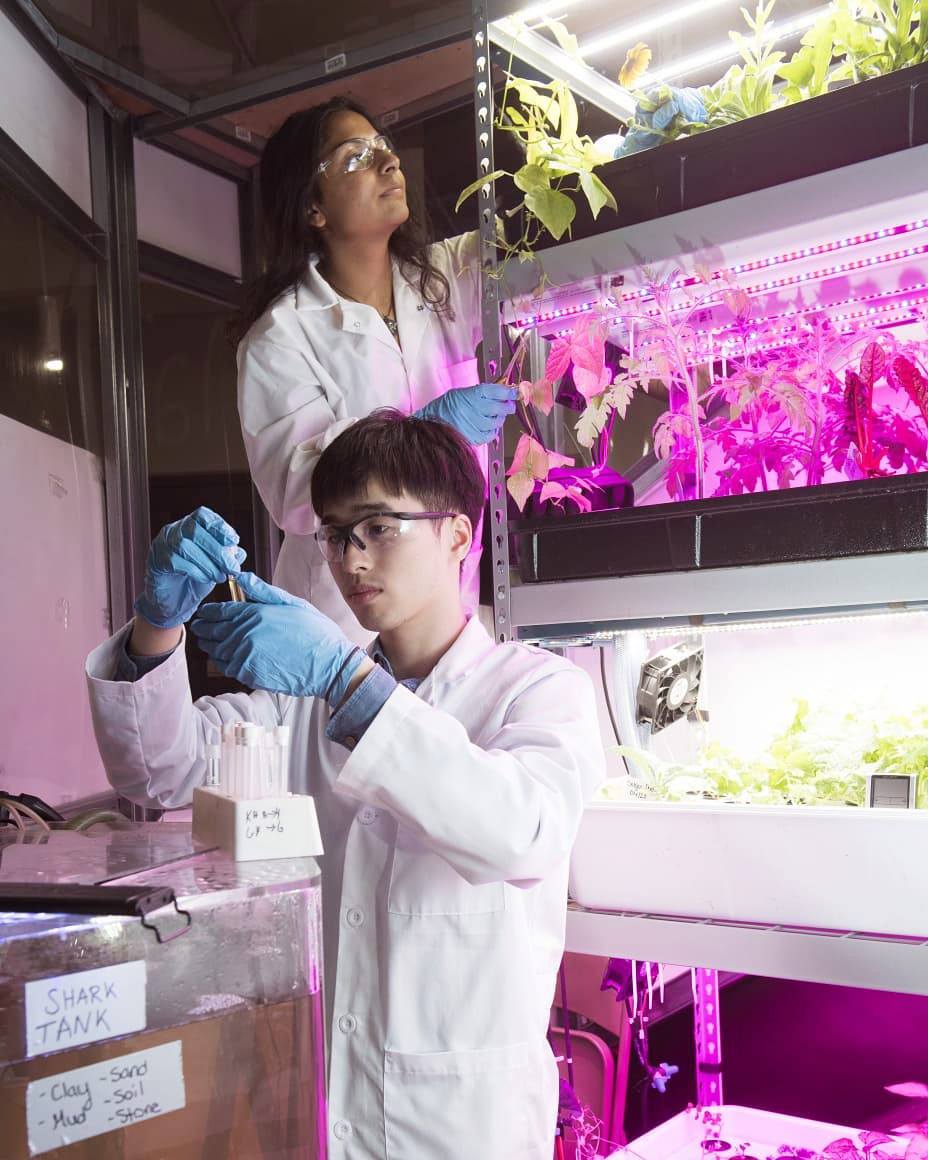
At NYU, students learn from expert faculty who are passionate about what they study and teach. Dr. Joyce G. Onyenedum, an assistant professor of environmental studies at the NYU College of Arts and Science (CAS), is no exception. Named a 2023 Botanical Society of America Emerging Leader, Onyenedum is the principal investigator of the Onyenedum Lab at NYU. There, she and a team of postdoctoral researchers, lab technicians, and NYU students investigate the evolution of plants and plant diversity.
“I’m curious about why there are so many species in the world and what differentiates them from one another,” Onyenedum shares. “What are the distinct traits? And why, evolutionarily, did all these plants come to be?”
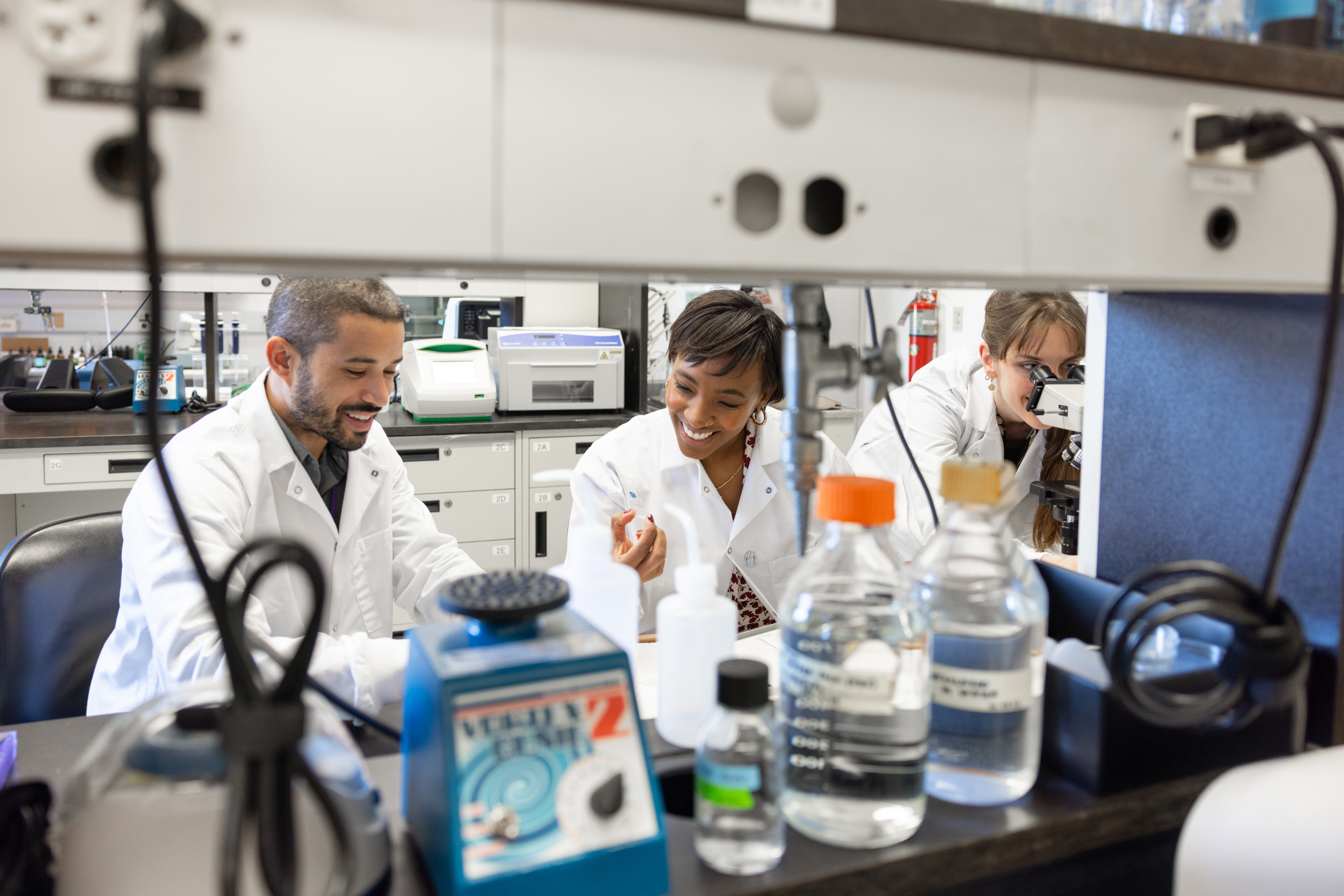
Studying the Secrets of Climbing Plants
The Onyenedum Lab focuses on climbing plants, which have evolved independently in locations around the planet. These plants move fast. They latch on to any nearby supportive structures, from trees in the forest to brownstones in the city. As a result of this evolutionary adaptation, they can access light quickly and avoid competing with other plants on the dark forest floor.
According to Onyenedum, learning about these flexible plants’ genes can provide insights into how all plants move. “Extreme versions of plants can teach us not only about the rules of life but also how to break those rules to create new and adaptive forms in nature,” she explains.
Today, climbing plants increasingly dominate tropical forests. As the climate changes, they have become larger and more abundant. Consequently, they often stunt or even kill the trees they use as support. “They directly compete with trees, which are the main sequesters of carbon dioxide,” affirms Onyenedum. “Understanding how climbing plants evolved to be so competitive is a matter of environmental significance.”
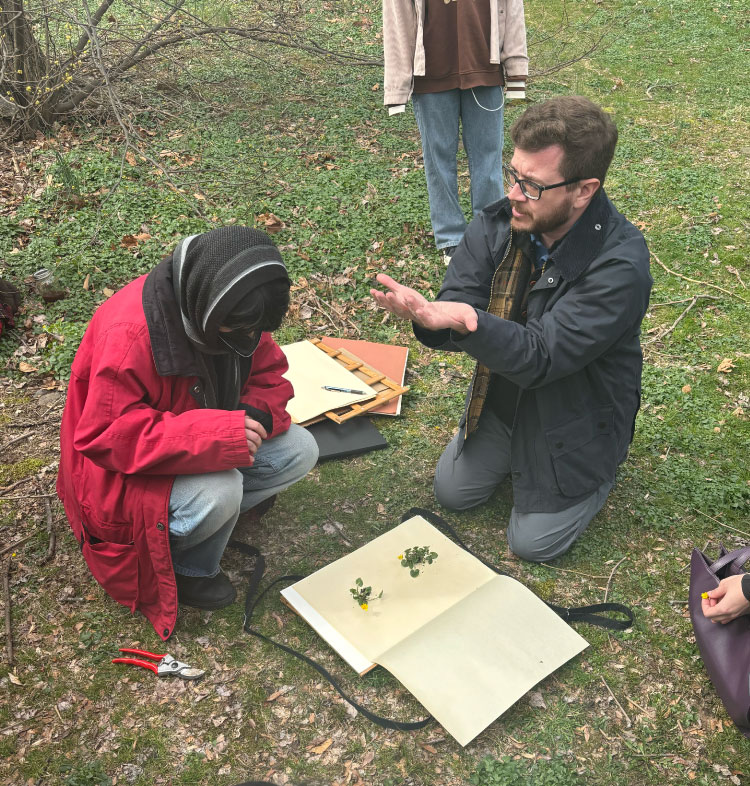
Building Relationships Between Plants and People
Onyenedum, who joined NYU’s faculty in 2023, is also drawn to the connection between plants and people. For her, the environmental studies department’s interdisciplinary nature and the University’s urban campus are ideal environments for exploring this topic.
Whenever needed, Onyenedum and her team leave the lab and collect climbing vine samples from nearby buildings. Inspired by the campus’ proximity to many plants and parks, she created a course called Urban Botanist. The class rebuffs the image of New York City as a concrete jungle. Instead, students learn about local plants and their unique features and origins. What’s more, they identify the plants best suited for an environment experiencing increased flooding and climate change. Ultimately, they become urban forestry advocates.
“We are not here with just bricks and buildings. We’re part of a diverse ecosystem with plants and animals,” says Onyenedum. “Learning about the living organisms in our urban ecosystem can make us feel more at home. Then, we can better advocate for that home.”
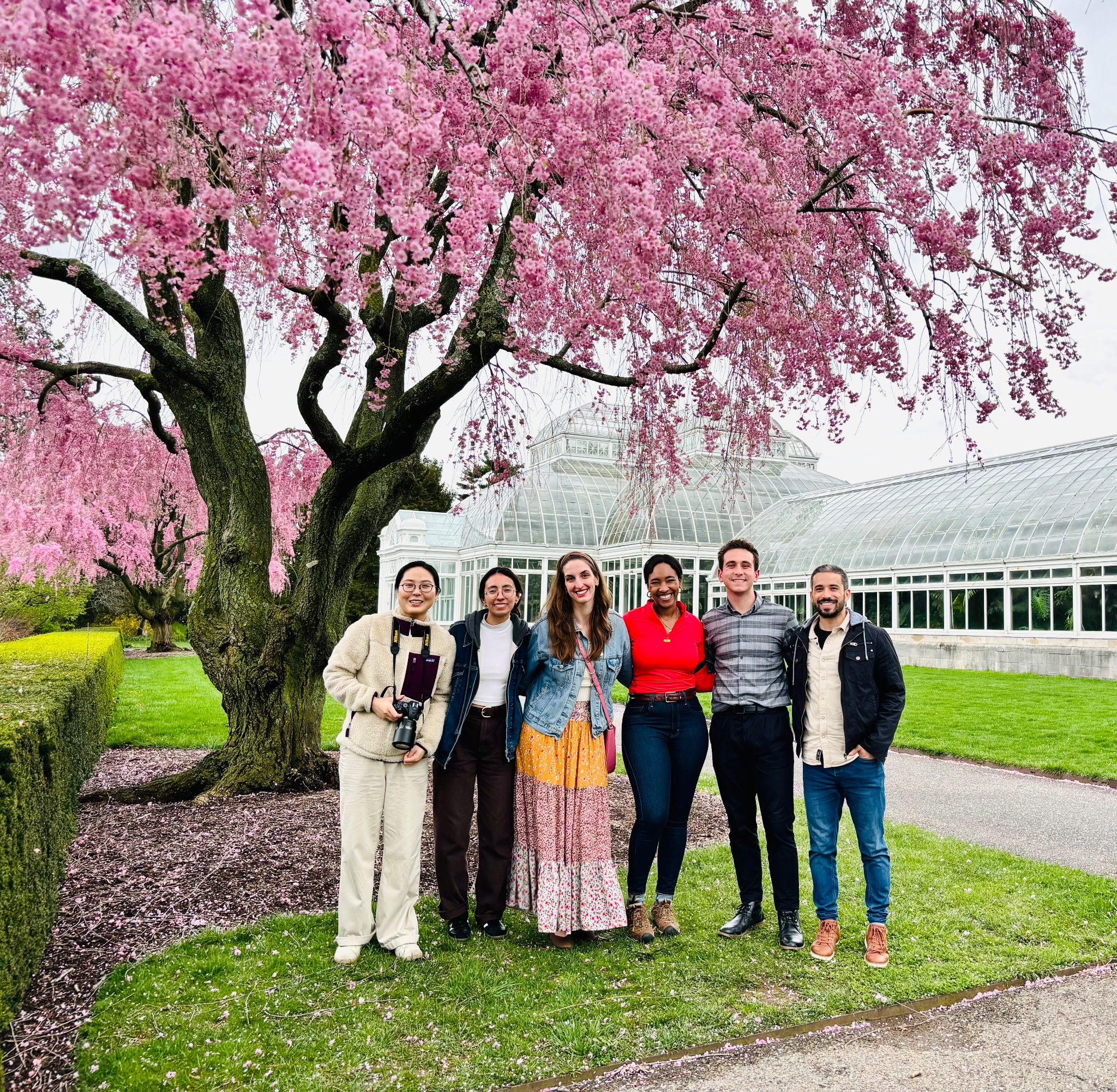
Undergraduate Opportunities in the Onyenedum Lab
In addition to taking the Urban Botanist course, undergraduates interested in Onyenedum’s research can join her lab. For instance, Annabelle Wang, an Environmental Studies and Biology double major at CAS, is one of several undergraduates involved with the lab’s work. She assists with plant sectioning, imaging, and data analysis to assess how and why brassinolide, a plant hormone treatment, affects plant cells. According to the lab’s studies, plants treated with this hormone grow longer, thinner stems that twine more aggressively.
For Annabelle, whose long-term goals include a doctorate in Plant Biology or Ecology, the experience has been educational and impactful. She’s been able to apply techniques she learned in class to an active project while improving her problem-solving, communication, and research skills. Overall, she’s thrilled to be a contributing part of the team. “Every time I walk into the lab and see other researchers at their benches, I feel like I have to pinch myself,” shares Annabelle. “The Onyenedum Lab is the exact environment I seek to engage with. It’s filled with very kind, knowledgeable people studying how plants do what they do.”

